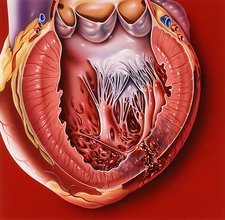Cardiovascular diseases remain a leading cause of morbidity and mortality worldwide, necessitating continuous advancements in diagnosis and treatment strategies. Over recent years, cardiology has witnessed groundbreaking innovations aimed at improving patient outcomes and enhancing the quality of life for individuals affected by heart conditions. These advancements encompass a wide range of areas, including drug therapies, minimally invasive procedures, and precision medicine approaches. Here is more information on the latest developments in cardiology, providing a comprehensive overview of their clinical significance and potential to transform heart disease management:
Procedures Revolutionizing Treatment
Traditional heart surgeries often require large incisions and extended recovery periods. The development of minimally invasive procedures now allows cardiology professionals to perform complex interventions with smaller incisions. This results in faster recovery times and decreased risk of complications.
Transcatheter aortic valve replacement (TAVR) has gained significant attention as an alternative to open-heart surgery for patients with aortic valve stenosis. With TAVR, a new valve is threaded through a catheter placed in a blood vessel. This procedure provides effective results without the need for major surgical intervention. Another innovation, percutaneous coronary intervention (PCI), continues to improve. New-generation stents with drug-eluting capabilities further reduce the risk of restenosis, enabling better long-term outcomes for patients with blocked coronary arteries.
Advances in Artificial Intelligence
Artificial intelligence (AI) is significantly improving diagnostic precision and decision-making in cardiology. AI-powered imaging tools can now detect subtle abnormalities in diagnostic tests like echocardiograms and cardiac MRIs. This supports earlier and more accurate detection of heart conditions. Machine learning algorithms analyze large datasets from patient records and imaging studies, identifying patterns that aid cardiologists in tailoring treatment plans.
The use of wearable devices and remote monitoring systems has also expanded. Devices such as smartwatches equipped with electrocardiogram (ECG) capabilities enable continuous heart monitoring, identifying irregular heart rhythms like atrial fibrillation in real-time. These innovations empower patients to participate actively in their care and facilitate better communication between patients and healthcare providers.
Breakthroughs in Regenerative Medicine
Regenerative medicine and gene therapy are revolutionizing how damaged heart tissue is treated. Stem cell therapy, a groundbreaking area of research, is being used to regenerate damaged cardiac tissue following conditions such as myocardial infarction. Several clinical trials have demonstrated the potential of stem cells in promoting tissue repair and improving heart function.
Gene therapy offers another promising avenue for treating inherited heart conditions. Advances in CRISPR and other gene-editing technologies have enabled researchers to correct genetic mutations. This includes some associated with certain forms of cardiomyopathy. This approach holds significant potential to address root causes rather than just symptom management. These advancements are paving the way for curative treatments in the future.
Learn More About Cardiology
These advancements highlight the progress being made in cardiology to combat heart disease more effectively. Minimally invasive procedures are reducing recovery times and risks, while AI and wearable technology enhance diagnostic accuracy and patient engagement. Regenerative medicine and gene therapy are opening doors to innovative treatments that address underlying causes. Together, these strides are transforming patient outcomes, offering new opportunities to overcome heart disease.
- Choosing the Right Plastic Surgeon for Your Cosmetic Procedure
- Understanding Different Types of Laser Treatments for Skin Rejuvenation
- Why a Family Dentist is Key for Maintaining Oral Health
- The Benefits of Regular Visits to a Wellness Spa
- Exploring the Emotional and Psychological Triggers of Eating Disorders


Leave a Reply